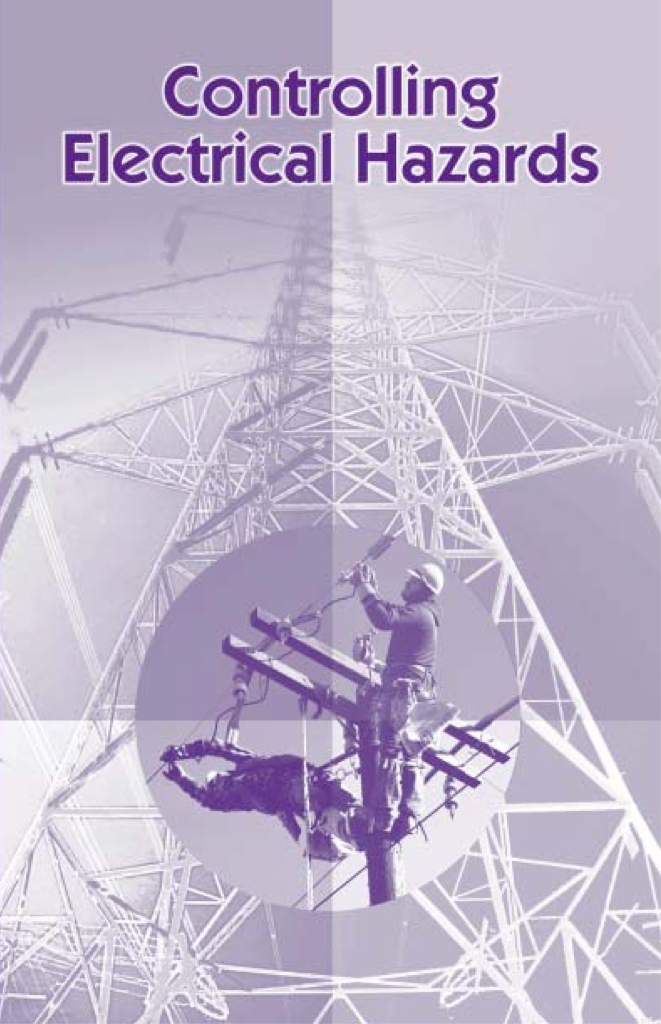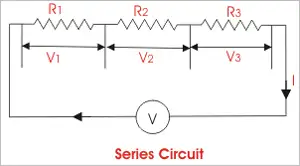Electrical Safety Training - NFPA 70E, CSA Z462
By R.W. Hurst, Editor

NFPA 70e Training - Arc Flash
Our customized live online or in‑person group training can be delivered to your staff at your location.

- Live Online
- 6 hours Instructor-led
- Group Training Available
Download Our OSHA 3075 Fact Sheet – Understanding Electrical Hazards in the Workplace

- Learn the effects of electric current on the human body
- Understand OSHA safety standards and protective devices
- Discover essential lockout/tagout and grounding practices
Electrical safety training teaches workers how to recognize, avoid, and respond to hazards. Learn proper PPE use, safe work practices, and compliance with NFPA 70E and OSHA standards to reduce risks in industrial and commercial power systems.
What is Electrical Safety Training?
Electrical safety training is essential because it equips workers with the knowledge and skills necessary to avoid potential hazards. Energized work presents numerous risks, from electric shock to arc flash, both of which can cause serious injuries or fatalities. It:
✅ Teaches hazard recognition, PPE use, and lockout/tagout procedures
✅ Helps meet NFPA 70E and OSHA compliance requirements
✅ Reduces risk of arc flash, shock, and injury on the job
Request a Free Training Quotation
Proper instruction minimizes these risks by teaching safe work practices, compliance requirements, and hazard recognition. It also ensures that anyone working with or near energized systems follows national safety standards like NFPA 70E, OSHA 1910, CSA Z462, and the NEC.
Let’s explore the importance of this kind of instruction, who needs it, what it covers, and how your organization can benefit from implementing a robust worker safety education program.
Why is Electrical Safety Training Important?
Working near energized systems exposes personnel to hazards such as arc flash, shock, electrocution, and equipment failure. OSHA mandates that workers be trained to recognize and avoid these hazards. NFPA 70E and CSA Z462 outline specific requirements for qualified and unqualified workers, retraining intervals, and safety documentation.
Arc flash incidents can reach temperatures hotter than the sun and send shrapnel flying at deadly speeds. Electric shock can stop the heart in milliseconds. Education is the first line of defence.
FREE EF Electrical Training Catalog
Download our FREE Electrical Training Catalog and explore a full range of expert-led electrical training courses.

- Live online and in-person courses available
- Real-time instruction with Q&A from industry experts
- Flexible scheduling for your convenience
At The Electricity Forum, our courses use real-world scenarios to mitigate risks, reduce liability, and strengthen workplace safety.
Aligned to Current Editions
Electrical safety standards are constantly updated to reflect new technologies, research, and workplace practices. Staying aligned with the latest editions is essential for both compliance and worker protection. Our programs are fully updated for NFPA 70E 2024 and CSA Z462:24. Key updates include:
-
Enhanced risk assessment procedures and job safety planning requirements
-
Clarified PPE selection methods and arc-rated clothing categories
-
Updated approach and arc-flash boundary calculations
-
Expanded requirements for energized work permits and documentation
-
Closer harmonization with the Canadian Electrical Code (CE Code)
Who Needs Electrical Safety Training?
Not everyone working around electricity is an electrician, but many workers face the risk of exposure to energized parts. Regulatory standards make it clear that training is not optional—it’s a fundamental requirement for a safe workplace. Electrical safety training is required for:
-
Electricians, engineers, and maintenance staff
-
Anyone exposed to energized equipment
-
Non-power workers in hazardous environments
-
Supervisors and EHS managers are responsible for program compliance
Even workers whose primary job isn’t related to working on energized equipment must be trained if there’s a reasonable chance of exposure to energized parts. OSHA requires retraining whenever job duties change, new equipment is installed, or deficiencies are observed.
What’s Covered in Electrical Safety Training?
A well-designed training program goes beyond theory. It combines compliance requirements with practical instruction so workers know exactly how to apply safety principles on the job. Topics covered include:
-
Hazard Recognition: Identify exposed conductors, faulty wiring, and poor insulation.
-
Arc Flash Awareness: Understand causes, PPE, labels, and arc flash boundaries. The arc flash boundary is the distance where incident energy equals 1.2 cal/cm², requiring PPE and safe work practices.
-
Shock Protection: Learn limited and restricted approach boundaries, insulated tools, and grounding.
-
PPE: Select and wear arc-rated clothing, gloves, shields, and other equipment.
-
NFPA 70E 2024 Compliance: Apply the latest procedures for energized and de-energized work.
-
Lockout/Tagout (LOTO): Follow OSHA 1910.147 practices to isolate energy and verify safe states.
-
Hazard Risk Assessment: Perform shock and arc-flash risk evaluations and apply mitigation strategies.
-
Energized Power Work Permits: Understand when permits are required and how to document them.
Measurable Outcomes
The ultimate measure of any training program is whether workers can apply what they’ve learned. Our courses emphasize hands-on skills, documentation, and compliance readiness so participants leave with practical capabilities. Graduates of our courses are able to:
-
Create a documented job safety plan
-
Perform a shock and arc-flash risk assessment
-
Select PPE using category and incident energy methods
-
Complete and apply an energized work permit
-
Verify lockout/tagout and establish a safe work condition
All participants receive a certificate of completion with CEUs/PDHs. Retraining is required at least every three years or sooner if conditions change.
Electrical Safety Training Courses
Arc Flash Training
Arc flash instruction focuses on incident energy, hazard analysis, PPE selection, and label reading. Workers learn how to assess arc flash boundaries and follow safe work protocols.
➡️ Explore Arc Flash Training - CSA Z462
➡️ Explore Arc Flash Training Certification
Arc Flash Analysis
Arc Flash Analysis course is intended for engineers and safety professionals who perform or oversee arc flash studies. This course covers calculating incident energy levels, defining arc flash boundaries, and applying IEEE 1584 methodologies to ensure compliance with NFPA 70E and OSHA requirements.
➡️ Learn more about Arc Flash Analysis Training
NFPA 70E
This course dives into the standard’s requirements, including risk assessment procedures, PPE categories, safe work practices, and documentation.
➡️ View NFPA 70E Training
Arc Flash Training Online
Our live online format delivers interactive content covering arc flash hazards, incident energy, PPE, and NFPA 70E basics — ideal for remote or distributed teams.
➡️ Take Arc Flash Training Online
Arc Flash Training Requirements
OSHA and NFPA 70E both require regular instruction and documentation of employee competency. This includes hazard recognition, use of energized work permits, and emergency response.
➡️ Understand Arc Flash Training Requirements
OSHA Electrical Safety Training
OSHA 29 CFR 1910 Subpart S, education teaches hazard recognition, PPE, and LOTO. It is essential for compliance in industrial, utility, and commercial environments.
➡️ Visit our OSHA Electrical Safety Training Page
NEC Training
Our NEC course covers updates and ensures safe design and installation practices. It is ideal for electricians, inspectors, and engineers.
Test Your Knowledge About Arc Flash!
Think you know Arc Flash? Take our quick, interactive quiz and test your knowledge in minutes.
- Instantly see your results and score
- Identify strengths and areas for improvement
- Challenge yourself on real-world electrical topics
➡️ View NEC Electrical Code Training
Electrical Safety Training for EHS Managers
EHS managers must understand safety programs, audit protocols, and compliance planning. This course supports safety officers and supervisors in developing compliant procedures.
➡️ See Electrical Safety Training for EHS Managers
Electrical Safety Program Development
Our Safety Program Development course is designed for supervisors, EHS managers, and safety professionals responsible for creating and maintaining compliant programs.
➡️ See Electrical Safety Program Development
Lockout/Tagout Training
LOTO procedures are critical for safe maintenance and shutdowns. This course covers OSHA 1910.147 requirements and proper isolation and verification of energy sources.
➡️ Learn About Lockout Tagout Training
High Voltage Training
This course is tailored for workers dealing with systems above 600v. Topics include approach distances, rubber goods, switching procedures, and equipment grounding.
➡️ Explore High Voltage Safety Training
Frequently Asked Questions
What does OSHA-compliance mean?
It’s aligned with OSHA standards, such as 1910.269 and 1910.333, which cover hazard identification, PPE, and safe practices.
Who needs certification?
Electricians, engineers, and anyone working near energized equipment should be certified to prove competence.
What is covered in arc flash training?
Causes, incident energy, arc flash boundaries, risk assessment, and PPE selection.
Why is lockout/tagout training important?
It prevents unexpected energization by teaching proper energy isolation during servicing.
How does training support an ES program?
It ensures workers understand procedures, comply with NFPA 70E/OSHA, and reduce risk company-wide.
Summary
Electrical safety training is the backbone of any industrial safety program. Whether you're a frontline worker, a supervisor, or a safety manager, staying current with hazards, PPE practices, and compliance standards is essential.
At The Electricity Forum, our courses are designed to support compliance, reduce liability, and, most importantly, protect lives.
➡️ Contact us to learn more about our courses or request a free quotation.
Related Articles:







